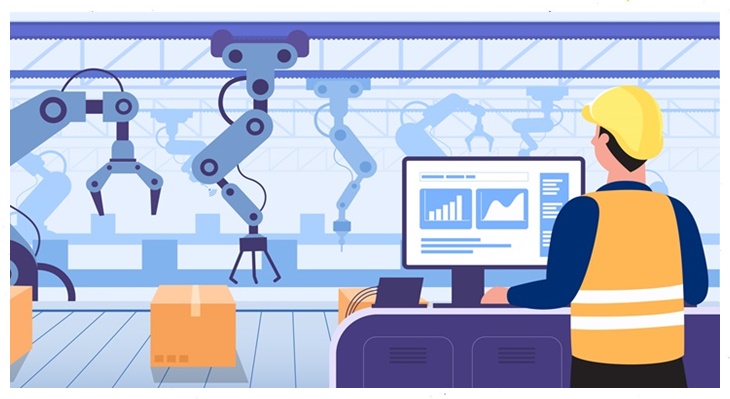Industrial automation refers to the use of technology and machines to control and manage various industrial processes and tasks. This technology has revolutionized the manufacturing and production industries by increasing efficiency, reducing costs, and improving product quality.
One of the key benefits of industrial automation is increased efficiency. Automated systems can work at a faster pace than human workers, reducing downtime and increasing productivity. This not only saves time and money, but it also leads to higher-quality products as automated systems are less prone to errors and inconsistencies compared to human workers.
Another advantage of industrial automation is its ability to reduce costs. By automating repetitive tasks, companies can reduce the need for labor, which can result in significant savings. In addition, automated systems can work 24/7 without needing breaks, which further increases productivity and reduces costs.
Moreover, industrial automation also improves product quality. Automated systems are equipped with sensors and cameras that can monitor production processes and detect any anomalies. This enables companies to detect and correct issues early on, leading to higher-quality products. In addition, automated systems can also ensure consistent product standards, making it easier to maintain product quality.
However, industrial automation has numerous benefits, but it also has some potential disadvantages, including:
- High Initial Costs: Implementing industrial automation can be expensive, as companies need to invest in technology, equipment, and personnel. This can be a barrier for smaller companies or those with limited budgets.
- Complexity: Automated systems can be complex and difficult to understand, requiring specialized knowledge and expertise to operate and maintain. This can create a skills gap, as companies may struggle to find workers with the necessary skills and experience.
- Inflexibility: Automated systems are designed to perform specific tasks and may not be easily adapted to changing conditions or new requirements. This can limit their usefulness and flexibility, particularly in industries that are rapidly evolving.
- Limited Creativity: Automated systems are designed to perform specific tasks and may not be able to think creatively or come up with new ideas. This can limit their usefulness in industries that require innovation and creativity.
In conclusion, industrial automation has revolutionized the manufacturing and production industries by increasing efficiency, reducing costs, and improving product quality. While it has its downsides, the benefits of industrial automation are too significant to ignore. As technology continues to advance, it is likely that industrial automation will become even more widespread and impactful in the coming years.

Industrial automation tools
Industrial automation tools refer to the technologies and systems used to control and manage industrial processes and tasks.
Some of the common industrial automation tools include:
Programmable Logic Controllers (PLCs): used to control and manage various industrial processes, such as manufacturing and production.
Robotics: automated machines designed to perform tasks that are difficult or dangerous for human workers.
Human-Machine Interfaces (HMIs): provide a graphical interface for operators to control and monitor industrial processes.
SCADA (Supervisory Control and Data Acquisition) systems: used to monitor and control industrial processes and assets in real-time.
Industrial Networking and Communication technologies: enable the transfer of data and control signals between different components of the automation system.
Machine Vision Systems: use cameras and image processing algorithms to inspect and control industrial processes.
Motion Control Systems: used to control the movement of automated machines and robots.
Distributed Control Systems (DCSs): centralized systems that control and monitor multiple industrial processes simultaneously.
Factory Automation Software: software tools used to automate various aspects of the manufacturing and production process, such as material handling and quality control.
These tools are used in various industrial sectors, including manufacturing, production, mining, and energy production, among others. The selection of the right tools will depend on the specific needs and requirements of the industrial process being automated.
In BD trading company we are working with well-known producer in this industry. you can find our partners here. for any inquiry, please contact us.
